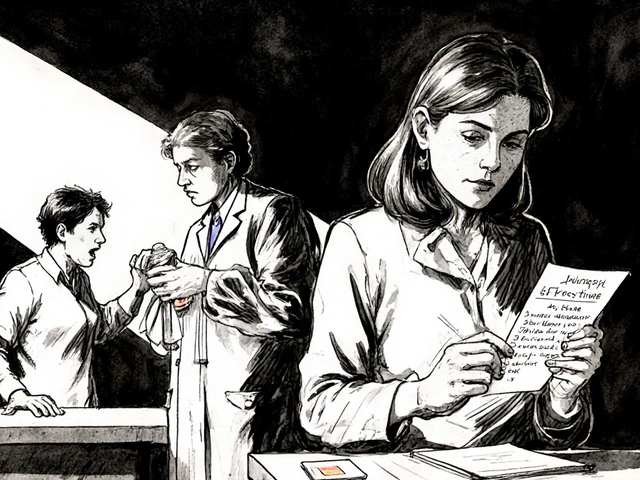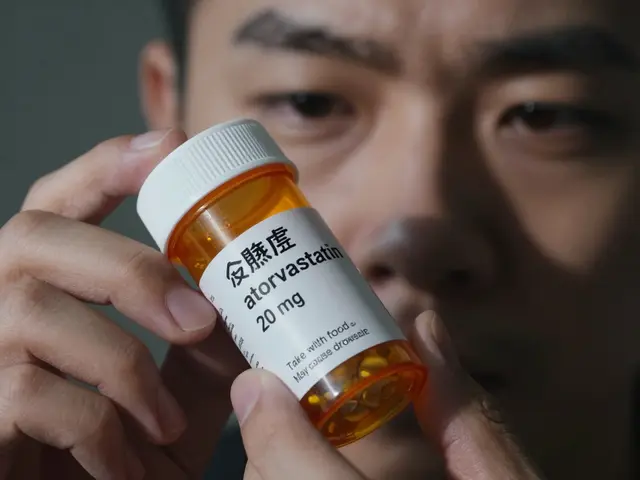Rethinking Hypothyroidism: Does the Daily Pill Actually Stand Alone?
Picture this: every morning, millions hit snooze, then reach for a little white pill—levothyroxine. For people with hypothyroidism, it’s not a choice, it’s a ritual. It keeps their energy stable, mind sharp, and symptoms in check. But here’s something wild you might not expect: therapy for underactive thyroid isn’t only about replacing low hormones. Your body’s demand for thyroid hormone can be shaped by what you eat, how you move, and even your daily stress. Scientists have spotted cases where minor, sometimes accidental, lifestyle tweaks changed people’s thyroid function dramatically. But can these tweaks ever fully take the place of levothyroxine? That’s a question with a complicated answer.
Levothyroxine is engineered to give your body a steady amount of T4 hormone. When your thyroid gland just can’t make enough—because of an autoimmune attack, surgical removal, or radiation—the medical dogma is clear: medication replaces what’s lost. Still, intriguing stories and some research suggest our modern lifestyle might poke or prod the thyroid in surprising ways. It’s not about making thyroid disease disappear with a green smoothie; it’s about whether strategic changes can reduce reliance on medication or improve how you feel, especially if you still have some thyroid function left.
The truth is, the answer depends on the reason for your thyroid trouble. If your thyroid was removed surgically, no kale salad will resurrect it. But, for those with sluggish thyroids due to Hashimoto’s disease or other chronic conditions, what you do outside the pharmacy matters—a lot. In some European clinics, doctors even try lifestyle measures before prescribing lifelong medication, especially in mild or early cases. In the U.S., the medical tradition usually means starting meds and rarely revisiting the idea. Why? Because it’s quick, reliable, and can be fine-tuned to your blood test results. But even with a prescription, many patients still feel tired, brain-fogged, or achy. That’s where lifestyle steps could play a secret, unsung supporting role.
So, how do food, movement, and everyday choices tip the balance for hypothyroid folks? Let’s dig in.

How Diet Shapes Thyroid Hormone Needs: Fact vs. Fantasy
If you Google “thyroid diet,” prepare to drown in suggestions. Some claim you need to gobble down seaweed, while others warn you to run from soy or cauliflower. The reality is less dramatic, but still pretty powerful. The thyroid needs a short list of nutrients to make its two main hormones: iodine, selenium, zinc, and a touch of iron and vitamin D. But more is not always better. Mega-dosing iodine (think kelp supplements or gallons of seaweed salad) can actually shut the thyroid down, especially in Hashimoto’s disease. On the other hand, too little can slow everything. The sweet spot? For example, Japan, with its moderate, not excessive, seaweed intake, has lower hypothyroidism rates compared to countries where iodine is rarely added to foods.
Selenium shows up as another hero micronutrient. It helps your body convert the T4 hormone (the kind in levothyroxine) into the more potent T3. Brazil nuts pack selenium naturally—one nut is enough for a day, so don't overdo it to dodge toxicity. Zinc and iron play backup roles, and low levels of either, especially iron, can sabotage how well levothyroxine works. For people who still have some thyroid function, balancing these nutrients might gently boost their own hormone production, but it won’t overhaul a completely broken gland.
There’s a catch, though: some foods mess with hormone absorption. Imagine you just took your pill with your morning coffee, orange juice, or high-fiber granola. Bad combo. Both caffeine and high-calcium meals (like dairy-heavy breakfasts) blunt how much hormone gets into your system. Even healthy whole-grain bran can reduce absorption by up to 40%. That’s enough to turn well-controlled hypothyroidism back into a sluggish ordeal. The fix? Take your pill on an empty stomach, then wait a solid 30 to 60 minutes before breakfast. But what about skipping the pill altogether? If you have mild thyroid dysfunction (called subclinical hypothyroidism), some studies show that eliminating certain food triggers (like gluten, in people with Hashimoto’s) and correcting common nutrient shortfalls (like vitamin D or B12) seemed to reduce the drag—sometimes enough to normalize blood work.
Here’s a table with key nutrients and their thyroid effects:
| Nutrient | Role in Thyroid Health | Best Food Sources |
|---|---|---|
| Iodine | Raw material for thyroid hormone | Seaweed, iodized salt, dairy, fish |
| Selenium | Converts T4 to T3; antioxidant | Brazil nuts, tuna, eggs |
| Zinc | Hormone synthesis and immunity | Pumpkin seeds, beef, lentils |
| Iron | Essential for hormone activity | Red meat, beans, spinach |
| Vitamin D | Immune modulation | Fatty fish, fortified milk, sunlight |
There’s another twist: gut health. Research from the last five years shows your gut bacteria actually “talk” to your thyroid, affecting immunity, inflammation, and how well you absorb levothyroxine. People with chronic gut issues (think celiac, IBS, or frequent bloating) tend to have a harder time keeping their thyroid levels steady. Adding more kefir, fermented veggies, or fiber-rich foods can help balance gut bacteria and, in some cases, improve thyroid numbers by making whatever hormone you have work more efficiently.
Of course, none of these food tweaks will turn a dead thyroid gland back on. But for those whose glands are just sluggish, the right diet could help you get by on a lower hormone dose—or in rare mild cases, avoid the pill for a while. Keep in mind, though, that you should always discuss changes with your doctor. If you’re curious about more natural or dietary alternatives to thyroid medication, there’s a lot you can read up on too.

Exercise, Environment, and Their Sneaky Impact on Thyroid Hormones
Now, onto movement. Exercise looks like medicine for nearly every system in the body, but what about those with sluggish thyroids? Oddly, classic advice often pushes people with hypothyroidism to “take it easy” because fatigue and muscle pain are common. That’s a myth worth busting. Regular, moderate exercise actually improves thyroid hormone sensitivity—it’s like oiling a rusty engine so it runs smoother. Stronger muscles use energy more efficiently, making symptoms less intense. People who start walking, biking, or lifting weights consistently often report better mood, sharper focus, and sometimes even need slightly less medication (though that last bit always needs a doctor’s check-in).
But more isn’t always better. Stressful, hardcore exercise like intense HIIT for over an hour or marathon training can push the body to produce more cortisol, a stress hormone that actually suppresses the thyroid. It’s about balance. About 150 minutes of moderate exercise each week seems to strike the sweet spot: enough to energize, not enough to burn you out. Activity also helps with weight—not by torching calories, but by normalizing hunger hormones. Untreated hypothyroidism slows metabolism by up to 30%, which means fat gain is almost guaranteed without some physical activity.
Now, let’s talk about the stuff you can’t see: environmental toxins. The thyroid is like a magnet for certain pollutants, especially things called endocrine-disrupting chemicals (EDCs). You see them in plastic bottles (BPA), flame-retardant furniture, old Teflon pans, and even some pesticides on produce. EDCs trick the body into thinking it has extra or missing thyroid hormone, scrambling your whole system. The scary truth is, residents in communities with high water contamination (like perchlorate or PCBs) have up to three times higher rates of hypothyroidism.
Here’s where practical steps come in. Toss out old plastic containers and heat food in glass or ceramic. Choose organic produce for the “Dirty Dozen” (the most pesticide-heavy fruits and veggies), and ventilate your home after cleaning or painting. Grab a water bottle made from stainless steel, not reused plastic. These changes won’t reverse thyroid disease, but they can lighten the hormone load your body deals with each day.
Let’s not forget daily stress. Mental stress ramps up cortisol, which goes hand-in-hand with inflammation and less active thyroid hormone production. Simple stuff like ten minutes of deep breathing, a daily walk in nature, or just saying no to extra tasks can cut stress hormones. Surprisingly, even meditation and yoga have been linked in studies to slight improvements in thyroid hormone levels among people with Hashimoto’s. It’s not magic, but it’s measurable.
So, can lifestyle changes replace levothyroxine entirely? If your thyroid is completely out of the game or missing, probably not. But if you’re in that gray zone with mild, early-stage, or stress/inflammation-linked hypothyroidism, the right lifestyle tweaks might lower your dependence—sometimes even enough to delay or dodge daily hormone pills. Think of food, movement, and environment as partners to whatever else your body (and doctor) need. They’re never the enemy of thyroid recovery, but just the opposite: they unlock hidden support your prescription can’t deliver by itself.











Kemari Nielson
18 Jul 2025 at 10:40It's an interesting topic, especially with the reliance many have on levothyroxine. From a clinical perspective, though, I would advise caution before considering lifestyle as a replacement therapy. While diet and exercise can indeed support thyroid function, they do not produce thyroid hormones themselves.
In addition, hypothyroidism is often caused by autoimmune issues like Hashimoto's, which might not respond to lifestyle changes. Supplementing or replacing levothyroxine entirely without medical supervision risks serious health complications.
It's worth noting that improving nutrition can reduce severity and improve quality of life. However, I don't see any scientific consensus that lifestyle changes alone can sufficiently replace prescribed hormone therapy.
Research might change, but currently, this article should emphasize consultation with an endocrinologist before altering any medication regimen.